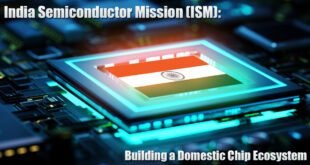A number of practical and constructive proposals were raised by Opposition parties in Parliament last week
On July 3, a short-duration discussion in the Rajya Sabha on electoral reforms attracted my attention. It was initiated by Trinamool Congress (TMC) MP Derek O’Brien, with the backing of as many as 14 Opposition parties. I have been extremely passionate and vocal about the issue throughout my years in office as well as after, and it was heartening to see political parties across the ideological divide trying to push the subject of how to make elections freer, fairer and more representative. The TMC MP touched on six major themes — appointment system for Election Commissioners and Chief Election Commissioner (CEC); money power; Electronic Voting Machines (EVMs); the idea of simultaneous elections; the role social media (which he called “cheat India platforms”); and lastly, the use of government data and surrogate advertisements to target certain sections of voters.
Appointment process
On the issue of appointments of Election Commissioners, Mr. O’Brien quoted B.R. Ambedkar’s statement to the Constituent Assembly that “the tenure can’t be made a fixed and secure tenure if there is no provision in the Constitution to prevent a fool or a naive or a person who is likely to be under the thumb of the executive.” The demand for revisiting the issue was supported by the Communist Party of India (CPI); the Communist Party of India-Marxist (CPI-M); the Dravida Munnetra Kazhagam (DMK) and the Bahujan Samaj Party (BSP), all of whom demanded the introduction of a collegium system. As regards the chronic problem of the crippling influence of money power, Mr. O’Brien spoke about various reports and documents — a 1962 private member’s Bill by Atal Bihari Vajpayee; the Goswami committee report on electoral reforms (1990); and the Indrajit Gupta committee report on state funding of elections (1998). Congress MP Kapil Sibal, citing an independent think tank report on poll expenditure released in June, discussed at length the regressive impact of amending the Foreign Contribution (Regulation) Act (FCRA) and removing the 7.5% cap on corporate donations.
On simultaneous elections
Many BJP MPs highlighted issues linked to electoral fatigue, expenditure and governance and also reports of the Law Commission and NITI Aayog to push for simultaneous elections.
Vinay Sahasrabuddhe of the BJP said that Prime Minister Narendra Modi’s proposal should be seen with an open mind and made a suggestion that it should be understood as a call for minimum cycle of elections rather than “one nation one election”.
Hence, the parliamentary debate was music to my ears. But Indian politics has been suffering from a wide gap between thought and action. The governments should also rise above their obsession with immediate electoral gains and think of long-term national interests. The TMC MP was right in saying that Parliament must not only urgently “debate and deliberate but also legislate” on electoral reforms. The time has come to find and enact concrete solutions in the national interest. Having heard a number of practical and constructive proposals raised in the Rajya Sabha last week, I remain hopeful that Parliament will take it upon itself to enable the world’s largest democracy to become the world’s greatest.
The writer is former Chief Election Commissioner of India and the author of ‘An Undocumented Wonder — the Making of the Great Indian Election’
Check Also
India Semiconductor Mission (ISM): Building a Domestic Chip Ecosystem
Introduction The Indian government, recognizing the critical role of semiconductors in the digital age, launched …
 Chinmaya IAS Academy – Current Affairs Chinmaya IAS Academy – Current Affairs
Chinmaya IAS Academy – Current Affairs Chinmaya IAS Academy – Current Affairs



